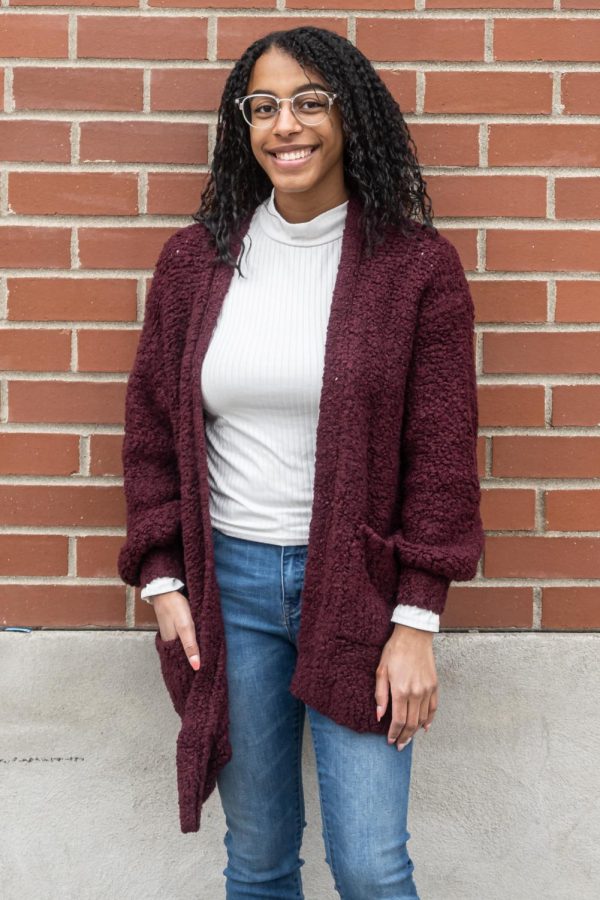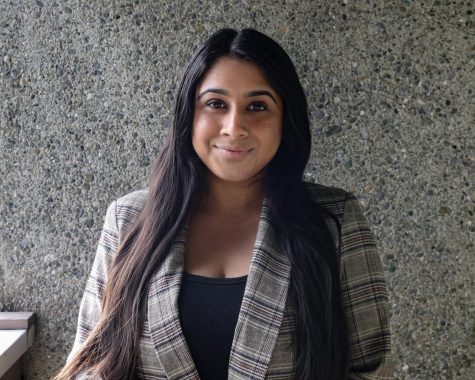‘[WSU] should be the amplifier for the voices of different ethnic backgrounds’
Two students of color feel others look at them differently when they walk around campus
Shiari McNeil, junior elementary education major, said she expected to feel more supported when she started at WSU.
February 17, 2022
While some professors give students of color the opportunity to share their experiences, two students say there is more WSU should be doing to support Black students and other ethnic groups.
“To be honest, I don’t really hear anything about the Black Student Union unless the Black Student Union says it,” said Chiké Nwankwo, senior information structure and systems major. “[The school] should be the amplifier for the voices of different ethnic backgrounds.”
If WSU wants to improve how they help make Black individuals and people of color more comfortable, Shiari McNeil, junior elementary education major, said they need to listen and act. Simply sending emails refuting racist behavior is not enough.
“[The school] needs to actually sit down and talk to Black people about what they want from us,” McNeil said. “And they actually need to do it. Follow up with the conversations, have the conversations and just listen to us. I don’t feel like we are asking for a lot.”
McNeil said she often feels belittled for sharing her experiences because students will get visually annoyed whenever she talks about her experience as a Black woman.
However, McNeil said she has met a few professors who genuinely listen to her and value the perspective she brings in.
“That’s been a huge surprise because you know Pullman doesn’t really seem like it’s full of people who are willing to hear about the stuff that Black people go through,” McNeil said.
McNeil said she expected to feel more supported when she started at WSU.
“I’m like, okay, this is pretty hype, like this is actually gonna be great,” she said. “And coming here my freshman year, I was like, where’s the support?”
Although he has never dealt with outright discrimination, Nwankwo said he would not be surprised if he had been indirectly discriminated against.
“I feel that diversity here is better than most places I’ve been to, but there’s still a very, very large part that is white,” he said. “Coming from Vancouver, my perspective on it is kind of different because there’s not much diversity there.”
Nwankwo said he feels people look at him differently when walking around campus and that he feels judged. However, he believes that anyone feels judged whether you are Black or not.
McNeil said she has dealt with microaggressions and judgment from students as well as people outside of campus.
“Something that I noticed is when I go to Safeway and go through self-checkout, they’ll be watching me a little extra, which is kind of irritating,” she said.
During class, McNeil said there was a time that she was being talked over when she was sharing how she felt about Black representation in children’s literature.
“It was a children’s literature class, and they were talking about how we see ourselves in books, and I shared growing up I didn’t see a lot of representation for Black people in books and how we are starting to see that now,” McNeil said.
The students in the class said they agreed with McNeil, but instead of continuing the conversation, they quickly moved on to talk about something else, she said.
Although McNeil said she is not part of any clubs at the moment, she was previously involved with the Black Women’s Caucus, the Black Student Union and attended Black Men Making a Difference.
“Just being on the fourth floor in the African American Student Center made a huge difference,” McNeil said.
In general, Nwankwo said his experience at WSU has mostly been positive.
“I was welcomed into a bunch of people’s communities or friend groups, people who are Black, white, Hispanic, everyone. I do feel welcomed here; you just have to put yourself out there,” Nwankwo said.










